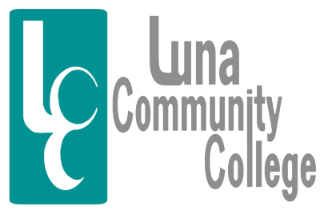An associate degree in mathematics prepares students for bachelor programs in mathematics or a related field. The Mathematics program does more than provide services for the College’s other programs through the rigorous math curriculum. The program can be applied to almost every career, including but not limited to statistical analysis, computer science, engineering, economics, education, or research in related fields. Credits earned to complete the requirements of the General Education Core cannot be used to fulfill the concentration requirements of the program.
For more information, contact Dr. Rita Surdi at rsurdi@luna.edu / 505-454-2587.
Program Learning Outcomes (PLOs)
- Graduates will possess a comprehensive understanding of fundamental mathematical concepts, including algebra, calculus, geometry, statistics, and discrete mathematics.
- Graduates will develop strong problem-solving and critical-thinking skills, applying mathematical reasoning and analytical abilities to solve complex mathematical problems and real-world applications.
- Graduates will be able to use mathematical models to represent and solve practical problems in various fields, applying mathematical techniques and tools to analyze and interpret data.
- Graduates will effectively communicate mathematical ideas, concepts, and solutions through written, verbal, and visual representations, demonstrating clarity, coherence, and precision in their mathematical communication.
- Graduates will possess the ability to reason and make informed decisions based on numerical and quantitative information, evaluating data, identifying patterns, and drawing meaningful conclusions.
- Graduates will effectively use mathematical software and technology, such as graphing calculators, mathematical modeling software, spreadsheets, and statistical software, to enhance problem solving, data analysis, and mathematical visualization.
- Graduates will understand the concepts of mathematical proof and be able to construct and evaluate mathematical arguments, demonstrating logical reasoning and a solid foundation in
mathematical rigor.
- Mathematical Applications: Graduates will apply mathematical concepts and techniques to solve realworld problems in diverse areas, such as science, engineering, economics, finance, and social sciences, demonstrating the relevance and applicability of mathematics in practical contexts.
- Collaborative and Cooperative Learning: Graduates will collaborate effectively with peers, engaging in cooperative learning activities, group projects, and mathematical discussions, demonstrating the ability to work collaboratively to solve mathematical problems.
- Graduates will engage in lifelong learning in mathematics, recognizing the dynamic nature of the discipline and the need to continually update their knowledge and skills, pursuing further education, professional development, and staying current with advancements and trends in mathematics and its applications.
